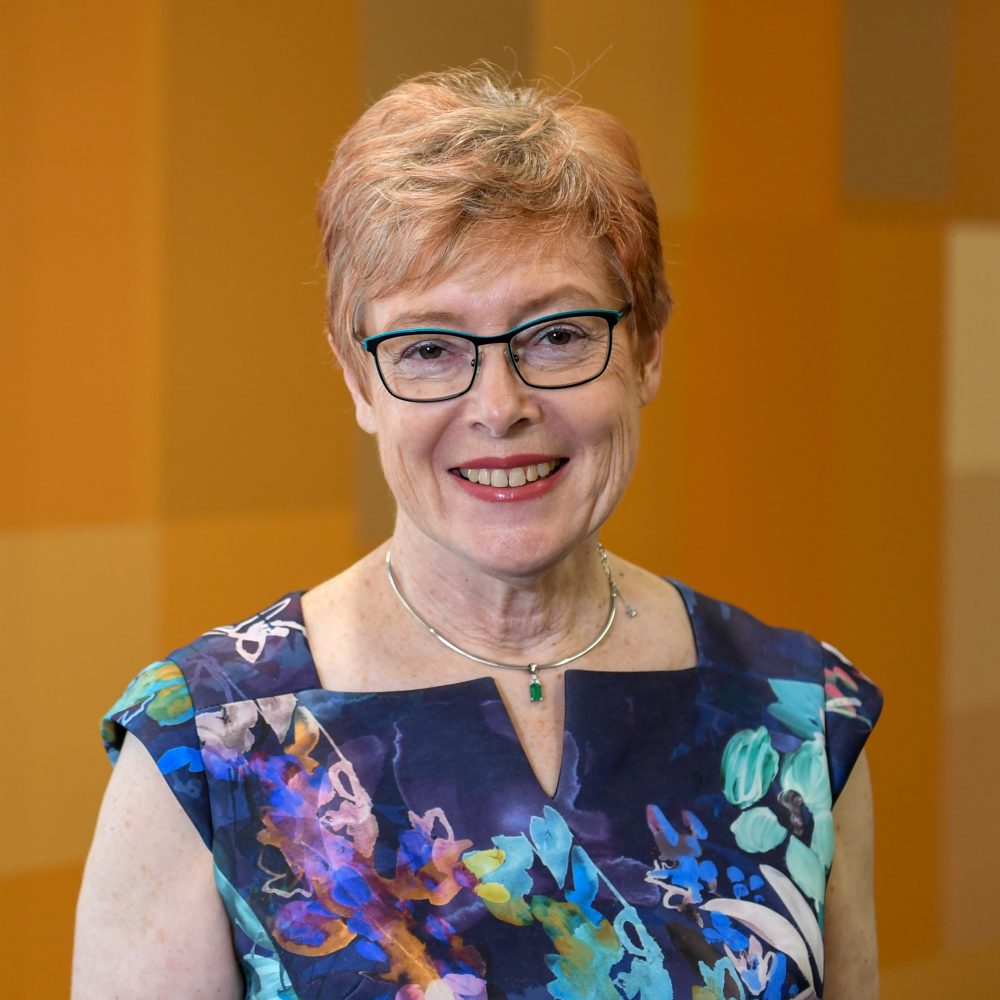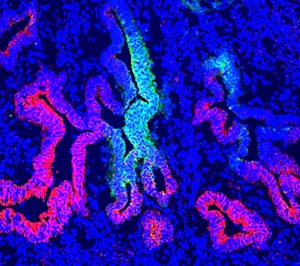Professor Caroline Gargett
Pelvic organ prolapse (POP) and endometriosis are two areas of women's health that have a debilitating effects on women’s lives. I lead a diverse team of scientists working on these issues to improve diagnosis and treatment options for the women.

Areas of interest
Endometriosis Pelvic organ prolapse (POP) Stillbirth
Research group
Biography

Professor Caroline Gargett (PhD 1997) is world-renowned for discovering stem/progenitor cells in human endometrium, the highly regenerative lining of the uterus, thereby establishing a new field of research in reproductive biology.
Prof Gargett formed the Endometrial Stem Cell Biology Group in 2004 following the award of the top scoring NHMRC New Investigator grant to study endometrial stem cell biology. Having since determined the identity of the endometrial epithelial progenitor cell (bases of branching glands) and mesenchymal stem cells (around blood vessels) through discovery of novel surface markers for each cell type, Prof Gargett is now applying these breakthroughs to common gynaecological disorders. The group currently comprises five postdoctoral scientists, three support staff and six students.
Prof Gargett leads a multidisciplinary project on endometriosis in collaboration with Prof Grant Montgomery at University of Queensland and gynaecologist Professor Luk Rombauts, funded by the US Department of Defense. This project aims to determine the role of endometriosis risk genes in endometrial epithelial stem/progenitor cell function using integrated single cells RNAseq and ATACseq, endometrial epithelial organoid and patient-derived xenograft technologies.
Prof Gargett leads an interdisciplinary project in collaboration with Monash Health urogynaecologist Associate Professor Anna Rosamilia developing a cell-based therapy using endometrial mesenchymal stem cells and degradable nanobiomaterials in collaboration with Dr Shayanti Mukherjee and Professor Jerome Werkmeister (formerly CSIRO) in her team to treat and prevent POP, a common disorder affecting 1 in 4 women. With her team Prof Gargett has developed several pre-clinical models of POP and vaginal birth injury to evaluate these new tissue engineering constructs and works toward translating the team’s findings into the clinic.
With a strong record of research excellence and discovery, Professor Gargett has secured funding from the US Department of Defense (AUD3M, 2019-2022) and NHMRC funding since 2004, including 7 CIA grants, an RD Wright CDA (2007-11), Senior Research (2013-18) and Investigator (2020-2024) Fellowships. Prof Gargett also secured SIEF funding for a prestigious John Stocker Postdoctoral Fellowship (for Dr Shayanti Mukherjee), and funding from the CASS Foundation, MIME, Australian Stem Cell Centre, Cancer Council Victoria, Therapeutic Innovations Australia, RANZCOG, Monash IVF Research Foundation and other philanthropic sources.
Prof Gargett is recipient of numerous national and international awards including the Society for Gynecological Investigation President’s Achievement Award (2013), the Endometriosis Foundation of America (2011), European Society for Human Reproduction and Embryology Established Scientist Award (2005), and the Society for Reproductive Biology’s RCRH Award for research excellence (2011). Professor Gargett’s research featured in the NHMRC’s 10 of the Best Research Projects in 2008 and 10 years later in three video clips on the NHMRC webpage. Prof Gargett has received widespread publicity in Australia and internationally and is frequently invited to give presentations at international conferences.
Professor Gargett is a Director of the National Stem Cell Foundation of Australia (since 2015) and Stem Cells Ltd (since 2019), and a member of the Scientific Advisory Board of the Centre for Commercialisation of Regenerative Medicine Australia node (since 2018). Prof Gargett is a member of the Scientific Committee of the Foundation Pour La Recherche sur L’Endometriose, France. Editorial board positions held are for Scientific Reports, Biology of Reproduction, Reproductive Sciences (2009-2019) and Fertility and Sterility (2011-14). Associate Editor roles have been for Reproductive Sciences (2015-2020) and Human Reproduction (2005-8). Prof Gargett was President of the Australasian Society for Stem Cell Research (2013-2014) and led the successful bid hosting the International Society for Stem Cell Research Annual meeting in Melbourne in 2018. Prof Gargett has served as Secretary for the Society for Reproductive Biology (2005-7) and is currently on the International Urogynecology Association Basic Science SIG Steering Committee.
Pelvic organ prolapse is a condition that affects one in five of us. It’s the reason we work so hard on our pelvic floor exercises during pregnancy. But one in five women will still need surgery to fix it.
In ABC’s Babytalk podcast, Professor Caroline Gargett National talks about the damage that can occur during childbirth, the options women have and the opportunities for new treatments.
One in ten women having endometriosis. The condition takes up to 10 years to diagnose, and causes severe pelvic pain and infertility. There is no cure and it often recurs after surgery.
In this explainer in The Conversation, Professor Caroline Gargett and her team write about why it takes so long for endometriosis to be diagnosed.
MORE ABOUT PROFESSOR GARGETT’S RESEARCH | Professor Caroline Gargett – women’s health | Helping women with endometriosis | Researchers close to finding the cause of endometriosis | Stem cell breakthrough accelerating endometriosis, women’s health research | Progressing solutions for endometriosis | Progressing solutions for endometriosis
Student opportunities

Publication highlights



